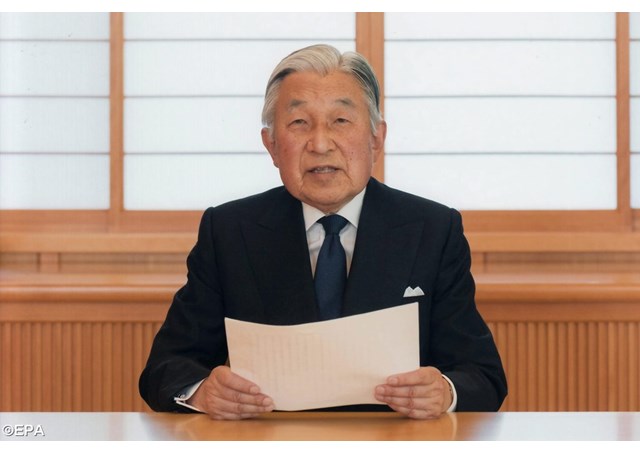
Japanese emperor expresses desire to abdicate throne

(Vatican Radio) Japanese Emperor Akihito threw a challenge to conservative tradition in Japan on Monday, saying as an aging leader he may wish one day to retire. The move would create a modern-day precedent.
Listen to Alastair Wanklyn's report:
In a rare national address, Emperor Akihito said declining health may force him to review his duties.
Eighty-two years old, Akihito has had heart surgery and treatment for prostate cancer, although his health is otherwise good and he maintains a busy public schedule.
The words he spoke were indirect, but the message was unprecedented. No Japanese emperor has abdicated in almost 200 years. Many nationalists here regard the role as untouchable.
And constitutional experts say current law does not even allow abdication, so legal revisions will be needed.
Japanese Prime Minister Shinzo Abe said the government will examine what it can do to reduce the emperor's workload.
Akihito commands respect from people across the board in Japan, in particular for speaking up for marginalized people, such as those still living as evacuees five years after the tsunami and nuclear disaster.
He has also spoken of sorrow for people overseas who live with the legacy of World War II.
These actions stand in contrast with those of Japan's government, which is often silent on such questions.
If Akihito were to abdicate, the next in line to the throne is his eldest son, Crown Prince Naruhito. But then the succession becomes complicated. Naruhito has only a daughter, and women cannot inherit Japan's throne. So the role would pass sideways to Naruhito's brother.
| All the contents on this site are copyrighted ©. |


